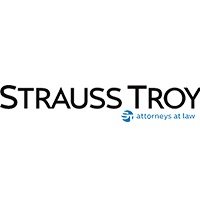Best Commercial Real Estate Lawyers in Kentucky
Share your needs with us, get contacted by law firms.
Free. Takes 2 min.
Free Guide to Hiring a Real Estate Lawyer
Or refine your search by selecting a city:
List of the best lawyers in Kentucky, United States
About Commercial Real Estate Law in Kentucky, United States
Commercial real estate law in Kentucky covers the rules, regulations, and legal standards that apply to properties used for business purposes. This area of law addresses the buying, selling, leasing, development, and management of office buildings, retail centers, warehouses, industrial sites, and other types of non-residential real estate. Kentucky’s legal framework for commercial real estate is influenced by both state statutes and local ordinances, with oversight from various governmental agencies. Because these transactions are often complex and involve significant investments, understanding your rights and obligations is critical to protect your interests and avoid potential disputes.
Why You May Need a Lawyer
Commercial real estate transactions in Kentucky can be complicated, involving lengthy contracts, due diligence, negotiations, and regulatory requirements. Here are some common situations where legal help is often necessary:
- Drafting, negotiating, and reviewing purchase agreements or leases
- Resolving disputes involving property use, boundaries, or zoning
- Dealing with title issues or defects
- Navigating financing challenges, including commercial mortgages
- Advising on property development and construction projects
- Handling environmental compliance and assessments
- Negotiating easements, covenants, or land use restrictions
- Managing foreclosure or repossession processes
A lawyer who is familiar with Kentucky commercial real estate law can help ensure that your transaction is smooth, legal, and aligned with your business goals.
Local Laws Overview
Commercial real estate in Kentucky is governed by a combination of state laws, municipal codes, and common law principles. Some key aspects include:
- Zoning and Land Use: Local governments in Kentucky regulate how property can be used, which can impact business operations. Zoning ordinances affect building size, usage, and location.
- Disclosure Requirements: Sellers may be required to disclose material defects or environmental hazards associated with commercial property.
- Title and Deed Recording: Kentucky requires deeds to be recorded at the county level, protecting property ownership interests and public notice.
- Commercial Leases: Lease agreements are contractual but must comply with state contract law and cannot override statutory rights.
- Financing and Liens: State law governs aspects of securing loans, including mortgage recording and foreclosure procedures.
- Environmental Regulations: Certain commercial properties must comply with federal and state environmental laws, especially regarding hazardous materials.
- Eminent Domain: State agencies and local governments in Kentucky can exercise eminent domain under specific circumstances for public use.
Due to these layered regulations, commercial real estate owners and buyers should stay informed about both state and local rules.
Frequently Asked Questions
What types of properties are considered commercial real estate in Kentucky?
Commercial real estate includes office buildings, retail centers, industrial warehouses, hotels, land for development, and multi-family apartment complexes (often five units or more). It does not include single-family homes or duplexes used for residential purposes.
Do commercial real estate transactions in Kentucky require a lawyer?
While not legally required, having a lawyer is highly recommended due to the complexity and risks involved in commercial transactions such as contract drafting, title review, and dispute resolution.
How does zoning affect commercial property use in Kentucky?
Zoning laws, set by local government planning departments, dictate how a property can be used, setting restrictions on business activities, building heights, parking, and signage. Non-compliance can lead to fines or business closure.
What should I look for in a commercial lease agreement?
Key elements include rent structure, length of lease, renewal options, maintenance responsibilities, permitted uses, assignment and subletting conditions, and termination clauses. It is important to have legal counsel review the lease.
How is commercial property financed in Kentucky?
Most buyers secure commercial real estate loans through banks or lenders, often requiring a larger down payment and shorter repayment terms than residential mortgages. Lenders will require title insurance and a lien to secure the loan.
What happens if there is a title defect during purchase?
A title search will uncover potential issues such as liens, easements, or ownership disputes. These must be resolved before the transaction can close, often with the assistance of a title attorney.
Are there special environmental rules for commercial properties?
Yes. Properties used for industrial, storage, or certain retail businesses may need environmental site assessments and compliance with regulations regarding hazardous materials or waste. Failure to comply can result in liability for clean-up costs and penalties.
Can I change the use of a commercial property in Kentucky?
Only if the new use complies with local zoning laws, or after obtaining a zoning variance or change approval from local authorities. This process can require public hearings and legal representation.
What is the process for evicting a commercial tenant?
Commercial evictions follow a different process than residential ones. The process is dictated by the lease terms and Kentucky law, usually beginning with notice of default and culminating in court proceedings if unresolved.
How does eminent domain affect my commercial property?
Government agencies can acquire property for public purposes, but owners are entitled to just compensation. An attorney can help you understand your rights and negotiate compensation or contest the taking.
Additional Resources
For more information or assistance, you can consult the following resources relevant to commercial real estate in Kentucky:
- Kentucky Bar Association - for attorney referrals and legal resources
- Kentucky Real Estate Commission - for licensing and regulatory information
- Your local county clerk's office - for deed recording and property records
- Local planning and zoning departments - for zoning maps and ordinances
- Kentucky Cabinet for Economic Development - for business and site selection support
- U.S. Small Business Administration (Kentucky District) - for business and property financing guidance
Next Steps
If you need legal help with a commercial real estate issue in Kentucky, consider the following steps:
- Gather all relevant documents, such as contracts, leases, title reports, or correspondence
- Make a list of your questions and specific concerns
- Contact a qualified Kentucky commercial real estate attorney, preferably one with experience in your type of transaction or dispute
- Schedule a consultation to discuss your situation, options, and potential outcomes
- Continue to educate yourself about Kentucky commercial real estate law by utilizing the resources listed above
Taking these actions can help you protect your interests, avoid legal pitfalls, and successfully navigate your commercial real estate transaction or dispute in Kentucky.
Lawzana helps you find the best lawyers and law firms in Kentucky through a curated and pre-screened list of qualified legal professionals. Our platform offers rankings and detailed profiles of attorneys and law firms, allowing you to compare based on practice areas, including Commercial Real Estate, experience, and client feedback.
Each profile includes a description of the firm's areas of practice, client reviews, team members and partners, year of establishment, spoken languages, office locations, contact information, social media presence, and any published articles or resources. Most firms on our platform speak English and are experienced in both local and international legal matters.
Get a quote from top-rated law firms in Kentucky, United States — quickly, securely, and without unnecessary hassle.
Disclaimer:
The information provided on this page is for general informational purposes only and does not constitute legal advice. While we strive to ensure the accuracy and relevance of the content, legal information may change over time, and interpretations of the law can vary. You should always consult with a qualified legal professional for advice specific to your situation.
We disclaim all liability for actions taken or not taken based on the content of this page. If you believe any information is incorrect or outdated, please contact us, and we will review and update it where appropriate.
Browse commercial real estate law firms by city in Kentucky
Refine your search by selecting a city.















